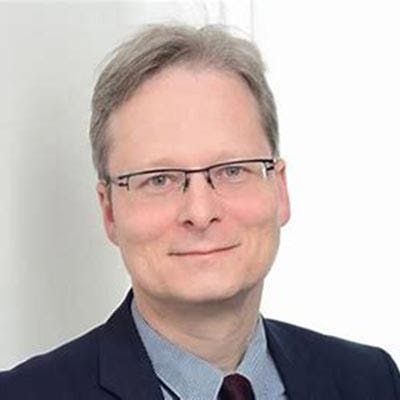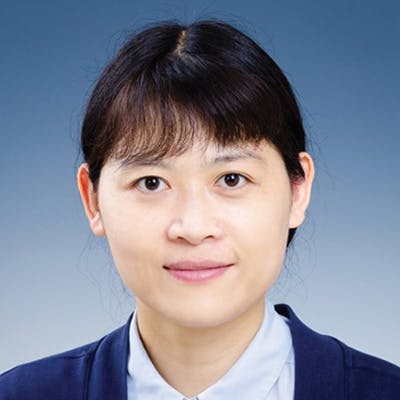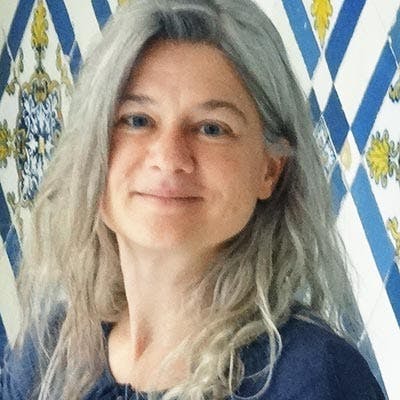The Greek manuscript Vlatadon 14 is named after the Byzantine monastery in Thessaloniki (founded around 1351) where it was discovered by Antoine Pietrobelli in 2005. The manuscript, which probably dates from between 1448 and 1453, contains a number of treatises by the great physician and philosopher Galen of Pergamum (AD 129–ca. 216), who counts, alongside Hippocrates, as the founder of Western and Arabic medicine, with influence extending well into the nineteenth century. The so-called medical revolution of the second half of the nineteenth and the first half of the twentieth century put an end to Galen’s medical authority. But his voluminous writings remain one of our most important sources for historical research into the ancient world, not only its medicine, but also philosophy and religion, language and literature, culture and society. Galen’s pervasive influence on both the European and Islamic worlds of the later centuries makes his work crucial for our understanding of these periods, too.
Since the 1980s, Galen’s historical importance has come into focus for a growing number of historians. The discovery of Vlatadon 14 in 2005 did much to stimulate further interest. One of the foremost experts in this area, Vivian Nutton, referred to it as “one of the most spectacular finds ever of ancient literature.” Vlatadon 14 contributes to our knowledge of Galen not only by containing works hitherto believed to be lost or adding important textual evidence on others, but also by improving our knowledge of the transmission and later reception of Galen’s work in the Byzantine, Hebrew, and Arabic traditions. During the first phase of inquiry into Vlatadon 14, most effort was devoted to the edition, translation, and study of the new texts.
This conference will bring together a select team of experts with the aim of building upon and contextualizing the results of this first phase and adding a focus on the traditions concerned with Galen’s work.
Join us in person or online for this free two-day conference by registering below.
Funding for the MS Vlatadon 14 conference and the associated Scripture and Science exhibition at Museum of the Bible has been generously provided by the Fritz Thyssen Foundation, the John Templeton Foundation, the Templeton Religion Trust, and The Blankemeyer Foundation.
Friday, January 12, 2024
9:00–10:00 a.m.
Arrival and Registration
10:00–10:15 a.m.
Welcome by Teun L. Tieleman, Utrecht University; Annette Weissenrieder, Martin Luther University Halle-Wittenberg; and Wesley Viner, Museum of the Bible
10:15–11:00 a.m.
“From the Discovery to the Examination of the Manuscript: New Evidence on the Thessalonicensis Vlatadon 14,” by Antoine Pietrobelli, University of Franche-Comté
11:00–11:45 a.m.
“The Vlatadon 14 Manuscript Almost Twenty Years Later: New Perspectives on the Text and Context of Galen’s ‘De indolentia,’” by Véronique Boudon-Millot, French National Centre for Scientific Research
11:45 a.m.
Lunch
12:30–1:15 p.m.
Optional Tour of Scripture and Science with Dr. Anthony Schmidt and Wesley Viner, Museum of the Bible
1:15–2:00 p.m.
“The Pseudo-Galenic Introduction and Ḥunayn’s ‘Medical Questions,’” by Elvira Wakelnig, University of Vienna
2:00–2:45 p.m.
“On Avoiding Diseases of the Soul: The Influence of Galen’s ‘De indolentia’ on Medieval Hebrew Writings Revisited,” by Carmen Caballero Navas, University of Grenada
2:45–3:00 p.m.
Break
3:00–3:45 p.m.
“Vlatadon 14 and Galen’s ‘Ars Medica’ in Syriac,” by Lijuan Lin, Peking University
3:45–4:30 p.m.
“Recently Published Findings on the Codex Climaci Rescriptus,” with a Behind-the-Scenes Tour by Brian Hyland, Museum of the Bible
Saturday, January 13, 2024
9:00–10:00 a.m.
Arrival and Registration
10:00–10:45 a.m.
“Biography and Bibliography: Galen on His Own Works,” by Peter N. Singer, Einstein Center Chronoi, Berlin, and Birkbeck, University of London
10:45–11:30 a.m.
“Galen’s Lost Letter: Two Decades of Research on ‘De Indolentia,’” by Clare Rothschild, Lewis University and Stellenbosch University
11:30 a.m.
Lunch
1:00–1:45 p.m.
“Galen’s ‘On His Own Opinions’ (with particular reference to Galen’s ideas on God and the soul),” by Teun L. Tieleman, Utrecht University
1:45–2:30 p.m.
“Galen on Christians and Christians on Galen,” by Annette Weissenrieder, Martin Luther University Halle-Wittenberg, and Lutz Richter-Bernburg, Eberhard-Karls University, Tübingen
2:30–2:45 p.m.
Break
2:45–3:30 p.m.
“Galen in European Monasteries: Medical Knowledge and Religious Wisdom,” by Volker Leppin, Yale Divinity School
3:30–4:15 p.m.
“Protomonastic and Monastic Paratexts of MS Vlatadon 14,” by Martin Illert, Martin Luther University Halle-Wittenberg
4:15–4:30 p.m.
Concluding Remarks
Speakers

Véronique Boudon-Millot

Véronique Boudon-Millot is research director at the CNRS (the French National Centre for Scientific Research). She was director of the research group “Orient et Méditerranée” (CNRS—Sorbonne University) from 2014 to 2018. She leads the program for the publication of Galen's works in the CUF (Collection des Universités de France, also known as collection Budé). She has published widely on ancient medicine, philosophy, and science, including more than 100 articles written in French, English, and Italian. She has edited and translated seven Galenic treatises, with introduction and commentary, in the CUF (in 2000, 2007, 2010, 2016, and 2021), and has also published a biography of Galen of Pergamum (2012), which was translated into Italian (2016), a biography of the emperor Marcus Aurelius (Paris, PUF, 2020) and an essay on old age (Vieux un Grec ne peut pas l’être, Paris, 2023).

Martin Illert

Martin Illert (*1967) is adjunct professor for Eastern Christianity studies at the University of Halle-Wittenberg. He studied theology in Kiel, Marburg, and Oxford, wrote his PhD on John Chrysostom and Syrian monasticism, and has published on patristic, medieval, and contemporary Greek, Slavonic, and Syriac theological texts.

Volker Leppin

Volker Leppin (b. 1966) did his studies in theology at Marburg, Jerusalem, and Heidelberg. He earned his doctoral degree in Heidelberg with a study on the late medieval scholastic William of Ockham in 1994, followed by his habilitation with a book on Lutheran apocalypticism in 1997. After holding chairs for church history at Jena and Tübingen Universities (both Germany) since 2000, he was appointed Horace Tracy Pitkin Professor for Historical Theology at Yale Divinity School in 2021. He is a member of the academies in Leipzig and Heidelberg, as well as of the European Academy, Salzburg (Austria). His research fields are the history and theology of medieval times and the Reformation. In 2023, his introduction to medieval spirituality was published by Baylor University Press.

Lijuan Lin

Lijuan Lin received her PhD in ancient Greek philosophy from the University of Munich and is now associate professor at Peking University (Center for Classical and Medieval Studies, Department of History). Her main fields of expertise include ancient Greek intellectual history, the reception of ancient Greek culture in the Syriac and Arabic world, and Syriac Christianity. She is author of Die Helfer der Vernunft: Scham und verwandte Emotionen bei Platon (de Gruyter, 2022), and has published a number of articles, in particular about the reception of ancient Greek medicine and philosophy in the Syriac tradition, and on the Syriac fragments found in Turfan, China.

Carmen Caballero Navas

Dr. Carmen Caballero Navas is a Senior Lecturer of Hebrew and Jewish Studies at the University of Granada, Spain. Her research interests include medicine among medieval Jews of southern Europe; the medieval Hebrew textual production on women’s health care, with a focus on women as recipients and givers of medical care; Jewish debates on sexual difference and the construction of meanings for the female body; and Jewish knowledge and practice of magic in the Middle Ages. Based on her current project, which focuses on Hebrew medical texts produced before the Black Death, she is preparing a new book on the 13th century medical work Sefer ha-yosher (Book of Rectitude).

Antoine Pietrobelli

Antoine Pietrobelli is professor of Greek language, literature, and civilization at the University of Franche-Comté (France). A philologist and historian of medicine, he discovered Galen's manuscript Vlatadon 14 in Thessaloniki in 2005 and has published other unpublished texts discovered in Byzantine manuscripts, such as Symeon Seth's (11th century) “Refutation against Galen” and his “On the Manual of Health According to the Balance of the Six Causes.” His publications include a critical edition of the first book of Galen's commentary on Hippocrates's “Regimen of Acute Diseases” (2019) and the collective work “Contre Galien.” His recent publications include Critiques d'une autorité médicale de l'Antiquité à l'âge moderne (2020) and De Bagdad à Constantinople: le transfert des savoirs médicaux (XIe-XIVe siècles), in collaboration with Alessia Guardasole and Marie Cronier.

Lutz Richter-Bernburg

Lutz Richter-Bernburg retired as chair of Islamic studies at Tübingen University in 2010. In his research, he has time and again returned to the translation and appropriation of Hellenistic science and philosophy, especially medicine, in formative and medieval Islam. Ayyubid historiography and classical Arabic and Persian writing on geography also count among his research interests.

Clare Rothschild

Clare K. Rothschild is professor of scripture studies at Lewis University (USA) and Professor Extraordinary, Department Ancient Studies, at Stellenbosch University (South Africa). She holds an MTS from Harvard Divinity School and a PhD from the University of Chicago. Her main research interests are Luke-Acts, the Muratorian Fragment, and the Apostolic Fathers. Clare spent a year as a Humboldt Fellow in Munich researching her book, Hebrews as Pseudepigraphon, on the Pauline attribution of this early Christian text. Her current research focuses on the Epistle of Barnabas, on which she is preparing a commentary for the Hermeneia series. She serves as general editor of Early Christianity as well as the SBL series, Writings of the Graeco-Roman World.

P. N. Singer

P. N. Singer is a fellow at the Einstein Center Chronoi, Berlin, and an honorary researcher at Birkbeck, University of London. He has specialized in the work of the Graeco-Roman doctor-philosopher Galen, with broader interests in historical conceptions of mind, mental illness, ethics, the emotions, health and disease, and time. His publications include: Galen: Selected Works (OUP, 1997); Galen: Psychological Writings (with D. Davies, V. Nutton, and P. Tassinari, CUP, 2013); Galen: Works on Human Nature I (with P. J. van der Eijk, CUP, 2018); Mental Illness in Ancient Medicine: From Celsus to Paul of Aegina (co-edited with C. Thumiger, Brill, 2018); Time for the Ancients: Measurement, Theory, Experience (De Gruyter, 2022); and Galen: Writings on Health (CUP, 2023).

T. L. Tieleman, Co-Organizer

Teun Tieleman studied classics and philosophy at Utrecht University, where he earned his PhD with highest distinction (1992). After spells in Nijmegen and in secondary education, he returned to the Utrecht Department of Philosophy in 2001, where he is now full professor of ancient philosophy and medicine (by personal appointment). He has held visiting positions at Cambridge University (1993), Novosibirsk State University, Siberia (2008, 2011, 2012, 2013), UCLA (2009), the Institute for Religion and Critical Inquiry, ACU, Melbourne (2018), as well as Humboldt-Universität zu Berlin (2023). His research focuses on Galen of Pergamum and his influence, Stoicism (Early Stoa, Posidonius, Seneca), theories of emotion, and the relation between ancient medicine and religion, as well as ancient philosophy and early Christianity. Teun Tieleman directed the research project “Human Nature: Medical and Philosophical Perspectives in the Work of Galen of Pergamum (2015–2021)” funded by the Netherlands Organisation for Scientific Research (NWO). He is a member of the governing board of the “Anchoring Innovation” research program (2017–2027) and chair of the board of OIKOS, the national research school in classical studies in the Netherlands.

Elvira Wakelnig

Elvira Wakelnig is assistant professor of Arabic philosophy at the Department of Near Eastern Studies of the University of Vienna, Austria, and works on the transmission of Greek sciences into Arabic and on the intellectual history of the Islamicate world.

Annette Weissenrieder, Co-Organizer

Annette Weissenrieder is professor of New Testament exegesis and theology and leads the Corpus Hellenisticum Institute at the Martin Luther University Halle-Wittenberg. Her research focuses on New Testament anthropology, ancient medicine, and ancient philosophy, with a special focus on the relation between religion and medicine. From 2017 to 2022, she and Katrin Dolle directed the research project, Körper und Verkörperung. Neutestamentliche Anthropologie im Kontext antiker Medizin und Philosophie (Body and Embodiment: New Testament Anthropology in the Context of Ancient Medicine and Philosophy). She is also writing a “New Testament Anthropology.” Her current projects include a new edition of the Vetus Latina Luke (with Thomas J. Bauer), the Old Latin Codex Vercellensis and digital humanities (a, VL3, with André L. Visinoni and Gregory Heyworth), and the Old Latin manuscript Codex Veronensis (with Rudolf Winfried, University of Göttingen). She is currently visiting professor at the Chicago Divinity School (2023–2024). She is also an Elisabeth-List Fellow at the University of Graz, working on a project dedicated to “Sexualities in Early Texts of Judaism, Christianity and Islam” together with Charlotte Fonrobert (Stanford), Mira Sievers (Humboldt University Berlin) and Katharina Pyschny.